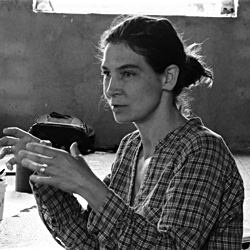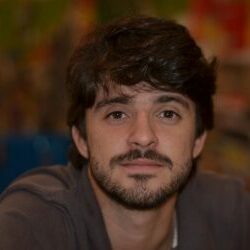A toolkit to social movement resilience
This course aims to strengthen economic literacy for activists across Europe to develop a deeper understanding about alternative economy, the mental models that sustain it, the tools and practises that are making it possible and how this can be harnessed and used to create economic sustainability for social movements in Europe. The course will navigate from a deeper understanding of our current economic mainstream system through a more human, collaborative and critical economics. This training is hosted as part of the Ulex South Project
Key learning blocks:
– Economic Literacy. While the knowledge around the function of Capitalism is widespread, there is a general tendency to enact the current economic model as a single way of producing, managing and bringing to the world. Therefore, finding a different pathway of economics, beyond growth-oriented capitalism, is urgent to create the different story that we want to act in. This course aims to address the knowledge void through a historical and systematic analysis of the system. We will be looking at what we mean with Alternative Economics (AE), what mental models underlie it, what type of AE exists currently, how we can understand ourselves in this context to become real agents and what tools are available.
– Economic sustainability for social movements. The course revolves around this question: How can we create resilience within our movements and through our networks so that activism becomes sustainable and can be sustained throughout time?
We will explore this question first by creating a space to reflect together, debate and analyse the challenges social movements face in terms of sustainability. Using systems thinking to explore the root causes and its complexities. The reflection will serve as a base for the prototyping of new ideas for their particular contexts.
Following this, we will present concrete case studies so that we can explore living alternatives.
– Tools and prototyping. The course vision is to be a practical collaborative laboratory where participants explore alternative economic tools that can be brought into dialogue with their concrete situations so that space is created for the emergence of prototyped solutions.
The course underpinning framework is action research. We use theory and case studies to instigate collective reflection and tools to put into action potential solutions.
We will be looking at:
Tools
Case studies:
In this course we will:
1) Strengthen and reinforce a critical economic analysis.
2) Gain a deeper understanding of Alternative Economics (AE).
3) Apply systems thinking and complexity to the economic analysis of social movements.
4) Identify the mental models underpinning alternative solutions.
5) Be able to identify key features and uses of at least 3 AE tools.
6) Gain sufficient practice based knowledge to draft an idea-solution to work with back in their groups.
Approaches and Methodologies:
Through participatory, reflective and experiential practices we will enable deep personal and collective learning. The use of case studies and applied group work will complement reflection with tools for action. Action Research will be one of our pillar methods, together with Complex living systems theory, Social Theatre, Design thinking Gaming.
References:
In the solidarity economy:
(See details of our approach to radical economics here)
Contact us
to apply

Location:
María worked for the Red Cross in community development, strengthening civil society, education, and food security in Latin America and Africa. Building on her studies in social psychology and international development, she studied Alternative Economics at Schumacher College, UK. This led her into work on organisational change with NGOs and grassroots movements. María specialises in complexity and participation applied to organisations: organisational structures and culture, emergent strategy, leadership amongst others. She co-founded The Eroles Project, a learning for action project and La Bolina, a systemic project looking at repopulation, inclusion and agroecology. María´s co-authored: Small is Important: Learnings from an integration and regeneration Project. Factores Clave para la Acción Reflexión Colaborativa, Enfoques y herramientas participativas en la cooperación al desarrollo, Activism and spirituality.

Location:
Felipe has a long history in the sustainability network, working in micro and macro scale, for different sectors and areas, where he also has graduated in Geography and Environmental studies in Brazil. After almost a decade in the sustainability market, he decided to enroll in the Masters of Economics for Transition at Schumacher College (UK) where he focused his research in the evolution of new economy and social innovation, mainly collaborative economy and the commons. From his dissertation he wrote the book Collaborative Economy: Recreating Collective Meaning in 2018. Side by side supporting different kinds of organisations’ journeys through collective experiences, Felipe is a skilled facilitator and now moved with his wife and three kids to Lisbon for a PhD in Political Science at ISCTE.

Location:
An Maeyens (she/her) is a facilitator and trainer with over two decades of experience in grassroots movements. She specialises in creative, inclusive agenda design and brings deep expertise on group culture, power dynamics, and transformative learning. Starting of in the anti-globalisation movement she has trained thousands in civil disobedience, supported international coalitions, and developed multilingual training programmes and toolkits. Her work spans movements, cultures, and countries, guided by a commitment to care, accessibility, and leaderful organising.

Location:
Ari’s activism began in 2002, at age 16, as a Bosnian refugee in Canada, where they founded and coordinated a group for LGBTIQ high school students and allies. They were a co-founder and leader at kolekTIRV in Croatia and Trans Network Balkan, involved in community organizing, advocacy, program management, team coordination, capacity building, education, media work, campaigns, events, fundraising, etc. In 2024, they joined the Supervisory Board of the Croatian Trade Union Collective of United Precarious Workers and Activists (SKUPA).
Beyond the Balkan region, Ari served as a Board member at Transgender Europe (TGEU), where they held roles as Secretary, Treasurer, and later Co-chair. They have also been a trainer with the Center for Artistic Activism and served on the Advisory Committee and since 2022 as a Community Care Facilitator at FRIDA — The Young Feminist Fund. Since 2024 they are the Operations Manager at Global Philanthropy Project.

Location:
Sergio (all pronouns) was born in Romania and migrated to Germany in the early 2010s. In the past, he was a social worker with homeless people and a social consultant for Eastern European migrants for various organisations. Trained as a filmmaker, he spent two years making a documentary about the ‘civic reawakening’ in Romania and the waves of protest it brought with it. In connection to this, Sergio is currently co-steering the development of an online open-source participative knowledge production platform on activism in Romania. Over the past nine years, Sergiu has offered his skills to various journalists, grassroots collectives and campaigns, mostly working within the labour rights, climate justice, international solidarity and anti-authoritarian movements in Germany and Romania. Nonetheless, his biggest focus since 2020 has been his work as an organiser with the anarcho-syndicalist Free Workers Union, where he focuses mostly on organising Romanian migrant workers on construction sites, in factories and in the agricultural field.

Location:
Linzy Na Nakorn is a movement director, politicised somatics practitioner, community organiser and facilitator. For the past decade she has been facilitating movement, body work and creating theatre, dance and participatory performance that advocates for and organises with communities in pursuit of housing, disability and racial justice. Her movement practice focuses on trauma-informed approaches to building resilience, capacity and joy via way of the body for personal, interpersonal and community sustainability. Linzy was a Co-Director of The Big Ride for Palestine in partnership with The Gaza Sunbirds, Native Woman Ride and Middle East Children’s Alliance; using cycling as a tool for mobilising active solidarity and in support of campaigning for the rights and self-determination of the Palestinian people. Linzy is part of a UK network of activists and artists advocating for Radical Care – supporting organisations, researchers and institutions to work towards system change in societal approaches to labour, leadership and access.

Location:
Jeroen (he/him pronouns) has been involved in grassroots social movements for more than two decades now, starting back when he was fifteen. Throughout the years the fights for “climate justice” and “migrant justice” have been consistently on top of the list of struggles that make his heart beat faster. A key transformative moment for Jeroen was reading Paulo Freire’s Pedagogy of the Oppressed. Freire’s revolutionary pedagogy gave him a language to support the creation of emancipatory learning environments, rooted in a desire for collective liberation. Jeroen has also been exploring in depth Boal’s Theatre of the Oppressed and Joanna Macy’s The Work That Reconnects among other methodologies to build his trainer’s toolkit. Inspired by the liberatory possibilities of these traditions, he started an organization with a friend, LABO vzw, based in Belgium, where he has worked as a trainer and campaigner between 2013 and 2023.

Location:
Ella brings more than 10 years’ external experience working with not for profit and community based organisations across diverse themes including: advocacy for migrant communities; local community engagement in national policy making; and structural relationships between poverty and disenfranchisement, and education and poverty. Immersed in critical theory in her early 20s she brings a holistic and questioning approach, and is passionate about systemic solutions that centre relationship and interconnection between ecology and society. A long standing member of the collective, Ella has been part of the core team since the inception of the Ulex Project. Her work bridges facilitation, developing project partnerships, governance, strategy, operations, and project and programme evaluation. She has developed and overseen more than 70 partnerships with a range of different actors across European social movements.
Ulex: Latin (argelaga Catalan, gorse English) noun:
1. A thorny-evergreen flowering shrub, with a high capacity for regeneration and resilience. Its seedpods open in contact with fire and it reshoots from charred stumps. A successionary plant that grows well under challenging conditions. It improves soil fertility through nitrogen fixing, preparing the way for renewed biodiversity.
2. A traditional choice for igniting fires. Burns hot and bright.
3. A networked project adding nutrition and fertility to European social movements through training and capacity building. It kindles the realisation of social justice, ecological intelligence, and cognitive vitality.